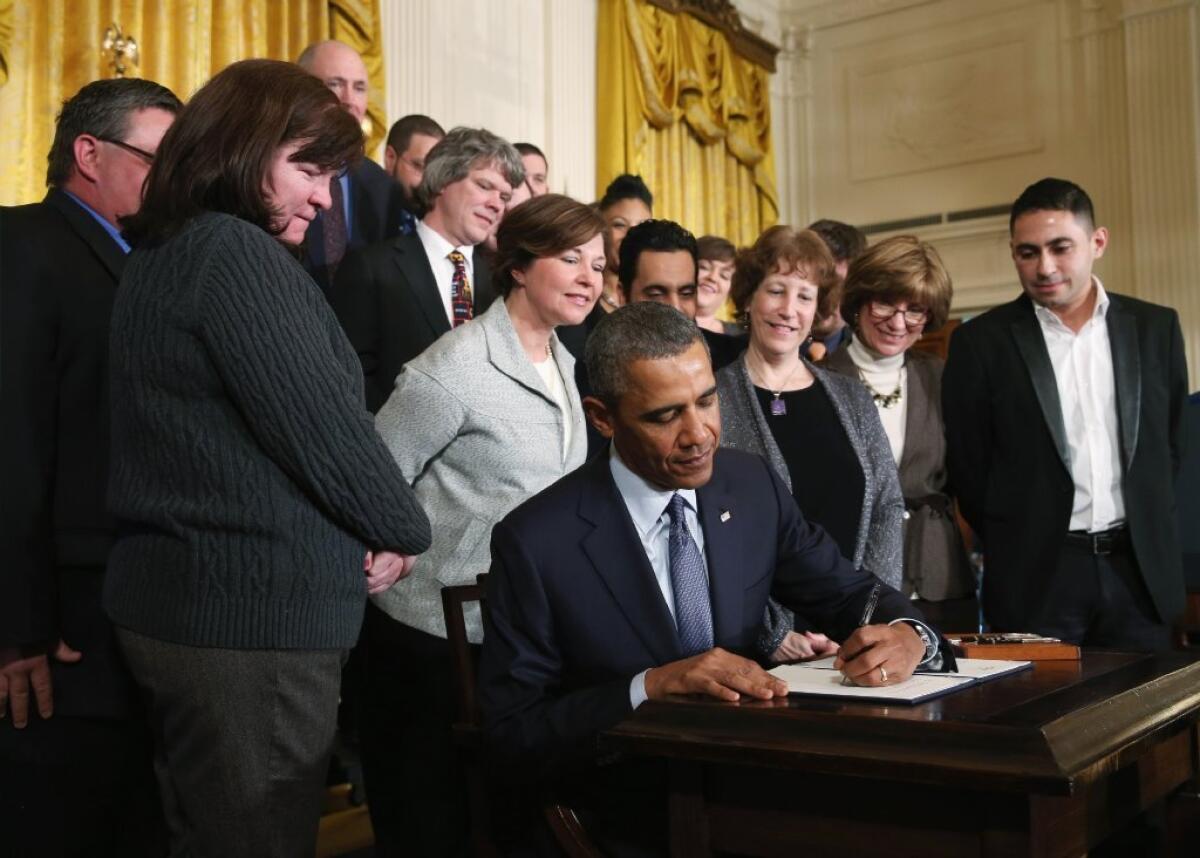The white-collar exemption

Last week President Obama ordered the Department of Labor to revise regulations determining which workers qualify for federal overtime protections, a move that was presented as a way to increase income for some lower-wage workers. It’s not. In reality, it’s a matter of basic fairness.
The issue begins with the federal Fair Labor Standards Act of 1938, which established the national minimum wage for most workers and guaranteed overtime pay for more than 40 hours of work a week. But the law also allowed overtime exemptions to be set by the Labor Department. Criteria for those exemptions have changed over the years, but were based on the nature of the worker’s duties and the worker’s salary, the presumption being that higher salaries denoted higher-status administrative workers who did not need the same protections as lower-wage production workers (an arguable point).
By 1975, labor regulators had set the salary threshold at $250 a week; workers earning less than that were entitled to time and a half after 40 hours. The threshold was raised in 2004 to $455 a week, where it remains, though California has adopted a higher threshold of $640 a week, which will rise to $800 a week by 2016. Labor activists say the national threshold, to compensate for inflation, should be $970 a week.
But the threshold doesn’t apply to workers categorized by their employers as executive, administrative or professional, the so-called “white collar” exemption. A fast-food shift supervisor who does primarily the same work as kitchen workers isn’t entitled to overtime, because her boss categorizes her as management. The guy leading a landscaping crew gets the same designation — and thus no overtime — even though the bulk of his work is running the same mowers, blowers and trimmers as the rest of the crew.
Pro-business groups immediately leaped on Obama’s directive on the principle that paying workers more will cut into profits and lead to a recalibration of work shifts, hours and other aspects of employers’ labor costs. Echoing their arguments against raising the minimum wage, they warned that the redefinitions could lead to layoffs. That may or may not be true, but it’s hardly a defense for intentionally redefining a worker’s status to deprive him of overtime.
The administration is right to end that deceptive practice by clarifying and brightening the line between hourly workers and managers. And it is right to increase the salary threshold to a more contemporary level. Even taken together, those changes in federal overtime rules may not cause wages to increase, but they will produce clearer definitions in keeping with the original intent of the law.
More to Read
A cure for the common opinion
Get thought-provoking perspectives with our weekly newsletter.
You may occasionally receive promotional content from the Los Angeles Times.










